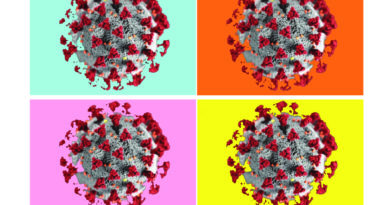Children, Pregnancy, and Peanut Allergy
 Peanuts at Christmas
Peanuts at Christmas
I’ve always loved monkey nuts (what peanuts in their shells are often called in the U.K.). I didn’t think they were particularly festive until several years ago, when I spent my first Christmas in Switzerland. I was charmed to see a Samichlaus (St. Nicholas) handing out little hessian sacks filled with peanuts. I was with a friend that day, who reacted in horror as Samichlaus tried to give us some peanuts. Later, my friend explained she wanted to protect her toddler from developing a peanut allergy. Note: this incident happened a number of years ago. The advice about children and pregnant women eating peanuts has changed since then.
Peanut allergy
Peanut allergy in children is on the rise. If you are allergic to them, a severe reaction to accidently eating peanuts can be life threatening. Avoiding peanuts and peanut products in everyday situations can cause a lot of stress to affected children and their families. Unlike some other food allergies, a peanut allergy is much less likely to disappear over time – it is often a life-long condition.
The ups and downs of medical advice
It is not unusual for medical advice to change over the years as new discoveries are made and new studies come to light. With peanuts, standard medical advice was turned on its head within a short space of time. This led to some confusion over what was best for individual families – a woman may have been told to avoid peanuts in her first pregnancy, and then found this advice was incorrect in her second or subsequent pregnancies.
Why did medical advice about peanuts change?
Previously, pregnant women and breastfeeding women were told it was better to avoid eating peanuts if there was a family history of allergy. It was felt that eating peanuts in pregnancy might actually increase the risk of your child developing a peanut allergy. Previous advice also said that peanuts should not be introduced until children reached the age of three. This advice is no longer valid.
Will your unborn child develop a peanut allergy if you eat peanuts while pregnant? Eating peanuts in pregnancy has no effect on whether or not your child will get a peanut allergy.
So, what is the current advice? Simply this: You can eat peanuts in pregnancy (unless you already have a known allergy to them).
What if you have a “high-risk” child, i.e., a child who has a strong chance of developing an allergy? “High-risk” refers to a child who already has other known allergies, or has severe eczema, or has an immediate family history of someone with a peanut allergy. Very recent studies have shown if these children eat peanut products from an early age, they are actually less likely to develop a peanut allergy. Note: if your own child is considered high risk, do not start them on peanut products until you have seen your paediatrician. (See the section below, “Testing a child for peanut allergy.”)
What is the current advice about young children eating peanuts? Peanut products can be given to all small children from the age of six months onwards, unless your child is considered a “high-risk” child. On a separate note, whole nuts should be avoided until the age of five, to avoid the risk of choking on a nut.
Testing a child for peanut allergy
If your child is considered to be a high-risk child, she should not be allowed to eat peanut products until she has been medically reviewed. Your paediatrician should refer your child to see a paediatric allergy specialist. Your child will need to undergo skin prick tests or blood tests. These can be done from the age of four months. If these tests are negative, you can start adding peanut products to your baby’s diet as you wean. If the tests are positive, a “peanut challenge” in hospital should be arranged. This will help establish if your child is allergic to peanuts or not.
The future
The topic of peanut allergy is frequently in the news and is likely to be something that crops up again and again. Topics to keep your eye on include:
- Treatments involving the desensitisation of children with peanut allergy by exposing them to tiny amounts of peanut at a time. The hope is that this type of treatment could “cure” peanut allergy.
- Aviation industry discussions about how to make flights safer for those with a peanut allergy
- Further research into why peanut allergy is becoming more and more common
If you are pregnant or weaning your baby, always check the latest, most up-to-date peanut advice!
Useful website
The AHA (Swiss Allergy Centre) has some useful general information in English on allergies, including food labelling in Switzerland.
A note about peanuts: I have only mentioned peanuts in this article. Botanically speaking, peanuts are not the same as tree nuts (walnuts, hazelnuts, almonds, pecans, etc.). However, people who are allergic to peanuts are frequently allergic to tree nuts, too.
By Dr. Jahura Hossain
Born and brought up in London, Jahura is a U.K.-qualified doctor. She has worked in hospitals, general practice, public health, prison medicine, and the pharmaceutical industry.
© Copyright. Jahura Hossain. 2015. All rights reserved. No part of this article may be reproduced without the express consent of the author.
Disclaimer: Do not feed your child peanuts, peanut products, nuts or nut products if you have specific worries or concerns. Please speak to your child’s paediatrician first.
Illustration by Lara Friedrich
Lara has been a freelance illustrator for Mothering Matters since early 2013. She is in her second year of University where she’s currently working as an assistant in a research project in pedagogy. Lara is also an assistant translator from German to English for various fiction books, as well as being a demo singer for the songwriter Kate Northrop.



